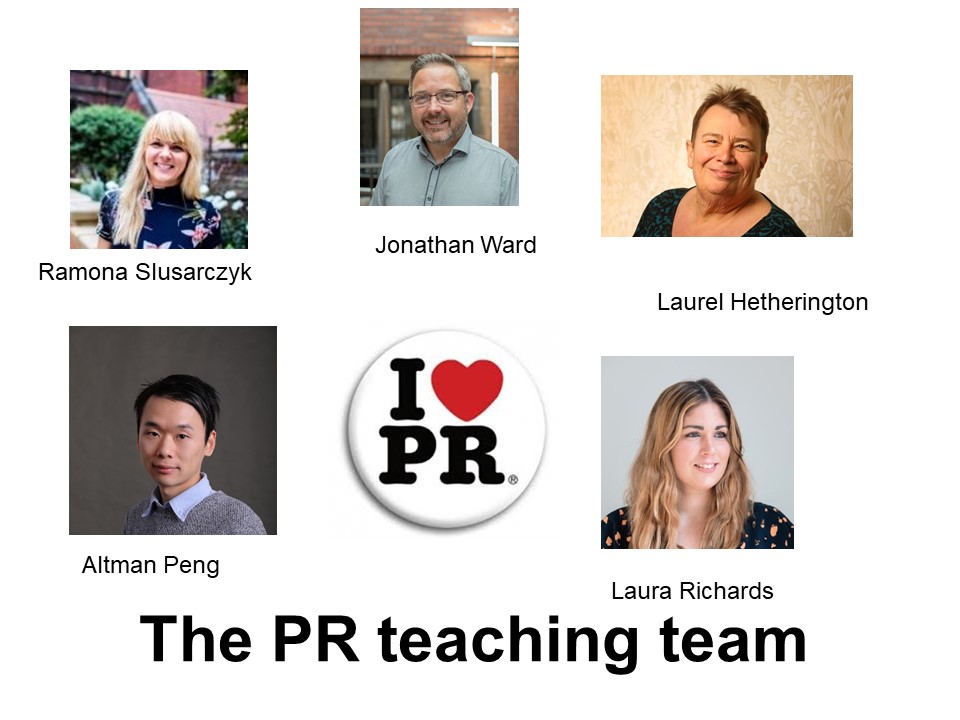The art of abandonment: how to kick start your academic year and stand up to the challenge
By Ramona Slusarczyk
Fear not: the title of this entry, taken from Dante-esque Hell, is just a tease – that’s how evil I am! – but what I really want to say is this:


Shyness, embarrassment, and anxiety are natural responses to public speaking, which, according to some surveys, is feared more than death, spiders and heights.
After years in academia, I very much prefer public speaking than spiders, no matter how cute they are.
The bad news is that throughout your studies – in both our online and offline sessions, you’ll have to speak in front of other people. A lot.
And then some more.
You’ll meet clients. Experts in the field. You’ll lead some sessions.
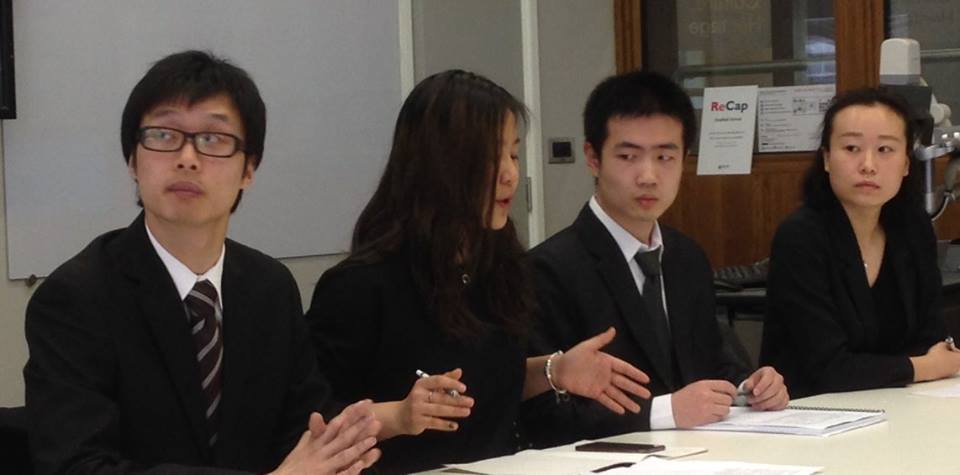
Our students, braving through a crisis press conference.
Blunders happen to all of us, yours truly included
No one likes to look like a fool, but the positive side is that all of us have similar fears and we all fail every now and then.
To prove my point, I’ll share the most embarrassing job interview anecdote (you can’t use it against me though) – and not just for any job, but for my most-dreamt-of and craved position of a university lecturer. Read: high stakes, weeks of preparation, and new formal clothes (obviously).
Understandably, I was nervous. Understandably, I was anxious. Unexpectedly, I was sick from food poisoning the evening before (side lesson: don’t do your final job interview prep over dinner out; the restaurant staff may try to poison you).
Having spent most of the night in hospital pleading with doctors to make me feel better – ‘I have a dream job interview in the morning!’ – I arrived at the university (it wasn’t Newcastle) with a green face, fluttering stomach, and sweaty hands.
To explain my state to the interviewing panel, I uttered a half-hearted warning about the said restaurant. Without batting an eyelid, the programme director said: ‘Are you warning us, Ramona, that you’ll be vomiting on us during the interview?’
Ha.
But the worst part was when one panel member asked me how I’d explain the difference between PR and advertising to students – something they usually struggle with at the beginning of the academic year (don’t feel bad about yourself if you do unless you’re at the end of your studies!).
I’d like to say that my mind went blank from stress (and hunger, and exhaustion). I think that actually would’ve been better than what it started projecting.
At such a crucial moment, my unsubordinate brain decided to get stuck on a quote I got from one of my research participants who cracked an old joke in response to my question about his perception of PR – the following cartoon illustrates his views:



DO NOT use this comparison
in your essays.
The only thing whirling in my head was that humorous – if not entirely inappropriate – parallel between first- and third party endorsement (something we will discussalong the conceptof trust A LOT) but I was clearheaded enough not to voice it; I doubt whether the panel would have appreciated it. Maybe they’d have been amused. Impressed – not so much.
Instead, I asked the interviewer to allow me to revisit the question a bit later and we moved on with the interview. I relaxed, the conversation flowed, and I went back to the PR vs. Advertising question – we’ll discuss that distinction a lot during the course of your studies, so bear the suspense!
But!
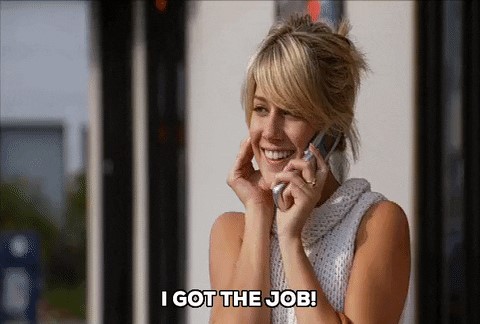
At the age of 29 I got my first lecturing job at an Australian university! Champagne!
It happened only because:
1. I was overall well-prepared,
2. I planned how to handle different/difficult questions,
3. I revisited the question and thus didn’t miss the opportunity to show my expertise.
And this is how I want you to think about your classes whether online or on campus: do your homework – do the readings and make notes and think what you’re going to say.
Keep your eyes on the prize: make the most of your time in our sessions and —

Very often, students worry: what if my answer is wrong aka what if I make an idiot of myself?
My answer is: SO WHAT.
Is it going to matter in twelve months’ time? No.
In three months’ time? No.
Are you being assessed on giving wrong answers in our sessions? No.
No?
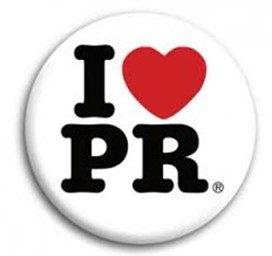
Those sessions are like a playground: you can test your ideas and we can debate why they work. Or why they don’t.
Pause, look around, take a breath. Gather your courage.
We are all learning.
It’s perfectly normal to get things wrong – it’s part of the learning process – but when you don’t take those opportunities and wait until you submit your paper via Canvas, then it’s too late to make any amendments and amends!
Eyes on the prize aka abandon yourself to experiences
Let’s go back to the beginning of my studies: early 2000s, University of Wroclaw, Poland. In the second year of my BA in Journalism and Communications, I chose a PR module as my option and that was it: I loved the module, the principles of strategic planning, the storytelling, the ethics of the profession… Everything!
It was love at first sight (seminar).
I wanted to develop my writing skills, so I wrote for the university’s weekly, got an internship at a magazine publishing company – I won’t tell you how many rookie mistakes I made there! – and then spent the summer working at a PR agency.
Fast-forward to my MA studies in Media and PR at nowhere else, but Newcastle University – I am a graduate of the same course you’re just about to start! – where I chose a practical module which required students to design and execute PR campaigns for local businesses.
The experience was petrifying – I had to pitch ‘our’ story to the local media, like, actually phone journalists and promote our client’s initiative – but it taught me how to be resourceful and that most practitioners in the communications industry are very, very nice people (I also learnt NOT to start a press release with ‘yesterday’ – do make a note of that!)
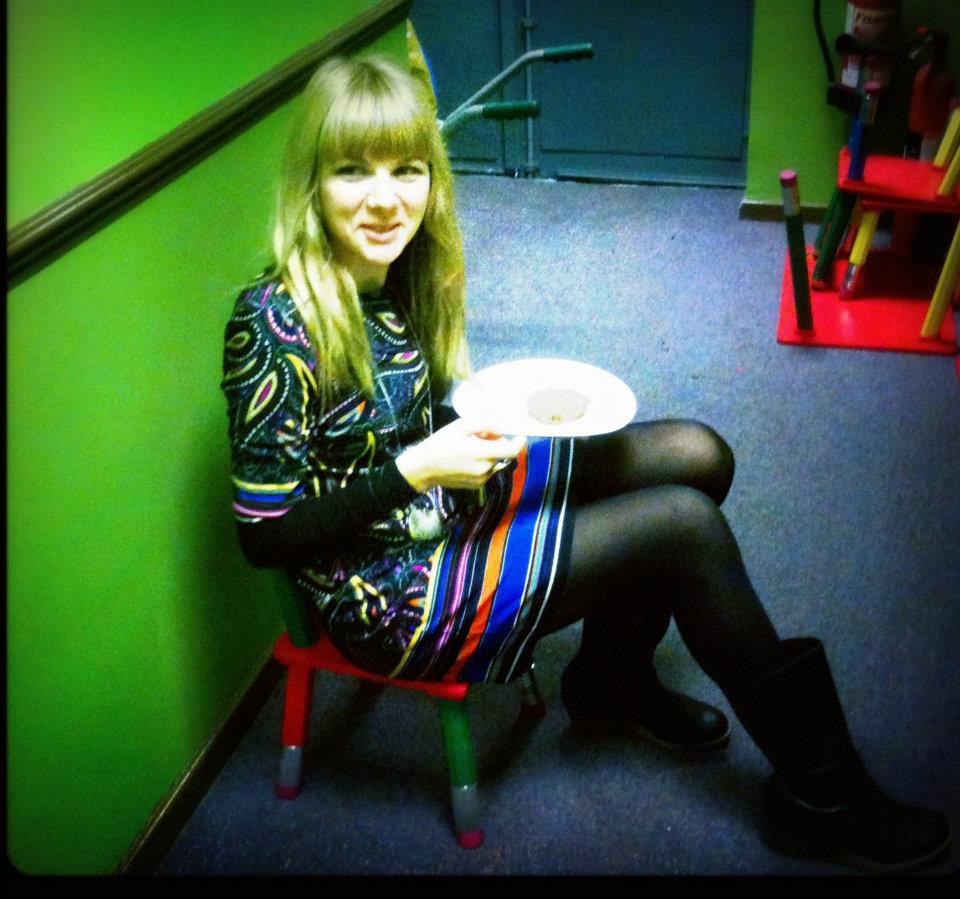
My younger, student-self at the backstage
of a fundraising event
with our client.
So, here’s my tip for you: do get involved in anything the University offers, and most opportunities are accessible both to the domestic and international students.
Take our project-based assessments seriously: they can serve as a showcase for your future employment and they can be extremely rewarding – see the result of the Pencil Case Project campaign our students ran as volunteers at the University:
[<iframe width=”932″ height=”524″ src=”https://www.youtube.com/embed/Gj3RfJwO6iI” frameborder=”0″ allow=”accelerometer; autoplay; clipboard-write; encrypted-media; gyroscope; picture-in-picture” allowfullscreen></iframe> – if the vid is possible to embed on Canvas]
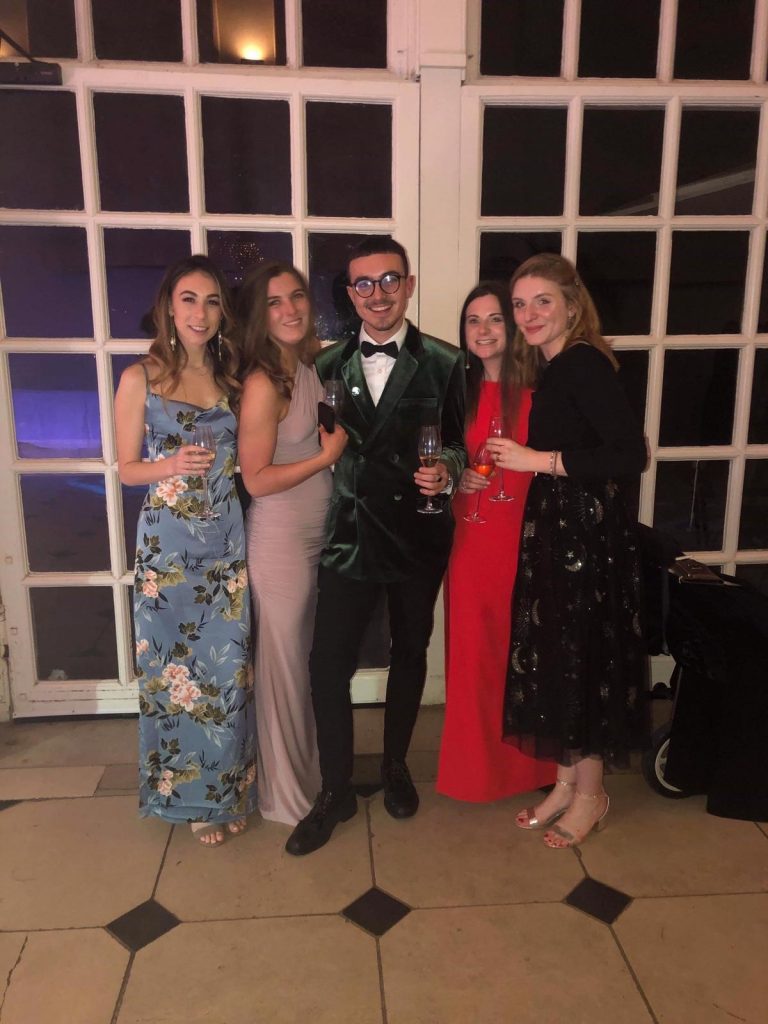
What our students did was sometimes glam, including a fundraising gala at beautiful Kew Gardens in London.
Currently, our alumni are running a fun social media campaign – check it out by clicking on #peelorpay
Eyes on the prize: language challenge
My acceptance letter left me in tears of joy, but I wasn’t eligible for a student loan, so I had to self-fund by keeping a full-time job and studying part-time
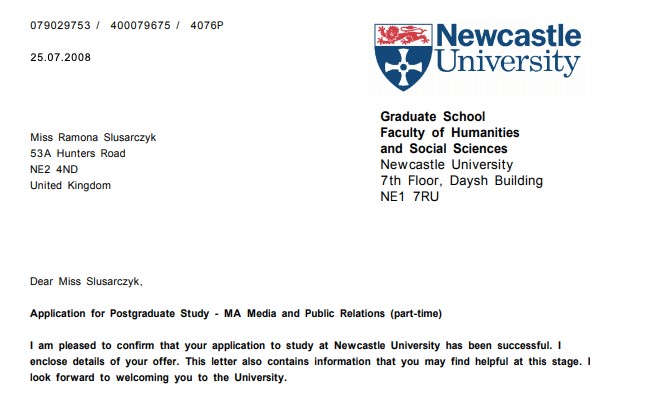
Remember my love for storytelling and writing?
Even though I scored 7.5 in ILETS test and received an unconditional offer, I was dying from anxiety at the prospect of studying in English – studying in English ON THE MA LEVEL!
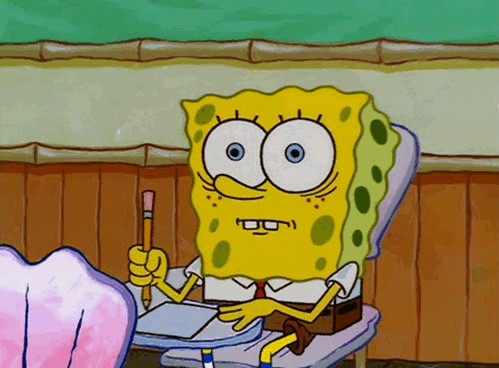
Like most of international students, I sat the additional language competency test and I passed, but I still attended workshops at what is known now as INTO because I wanted to become as fluent as I was in my mother tongue.
And here comes advice that may seem extreme, but it’s the best piece of advice I can give you:

Stop reading. Stop listening. Stop talking.
Stop all those things in your mother tongue.
Not forever, but for the course of your studies. You’ll never forget your language and you won’t lose your accent; I promise.
What you’ll gain is invaluable: you’ll become confident at expressing your thoughts in speaking and writing without the need to translate. Is it easy? Absolutely not.
But it’s totally worth it.
What I did was this: I stopped reading and writing in my native language. That’s it. I knew my vocabulary and the command of Polish was great because I read a lot. So it was obvious to me that the only way to develop my language skills was to do it in English only.
Immerse yourself in the language and culture
And accept that you’re not going to understand everything and that’s fine.
I used to start the day by catching up with news (and I still do): BBC, Euronews, The Guardian, The Chronicle, The Northern Echo – and that’s all you really need to do (unless you study Global PR – then throw in Reuters, AP, Politico and Al Jazeera, to name just a few).
The first novel I read in English was A Thousand Splendid Suns by Khaled Hosseini. It’s a beautiful story of two Afghani women and I got the plot, but vocabulary-wise…
Maybe I understood two-thirds of the words because otherwise I’d have to stop reading every few minutes to consult a dictionary and would’ve been extremely frustrating (apologies to Mr Hosseini for missing out on a lot of his brilliant narrative!).
This is obviously not ideal, but you can (and should) revisit your readings. The key point is to try to understand in English and in English only. With time, it’ll become comfortable. I promise.
The worst thing you can do is use an online translator or a running translation as you listen to us talking. I can hear you saying: ‘but I won’t understand everything.’
That’s why preparing for all sessions is key: if you do the readings, you’ll be ready to take part in discussions which will clarify your understanding of the ideas in English and connect the dots as we talk about the things you’ve read and beyond. You’ll enjoy yourself and you’ll be amazed at your progress.
I’ll say it again: eyes on the prize – and did I mention preparing for all our sessions?
Prep with courage, prep as if there was no tomorrow, prep as if your marks depended on it (and they do). And in English only please.
This entry is all about courage to test oneself and experiment and can only end with a decent, fun challenge for you:
How did you feel when you got your acceptance letter? What are your first impressions of Newcastle, the University, your peers?
Have you got yourself into an embarrassing situation already?
Dare to share
– we’ll love to read your stories

